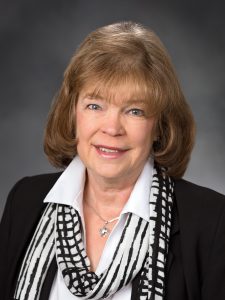This guest column was published in The (Everett) Herald, May 1, 2016.
By Sen. Judy Warnick, R-Moses Lake
Recently, billboards have popped up in Western Washington that were sponsored by a campaign called “What’s Upstream?” They were paid for with taxpayer money via a grant from the federal Environmental Protection Agency. Their message: Agriculture is damaging our state’s natural resources. As the chairwoman of the Senate Agriculture, Water and Rural Economic Development Committee, I have to comment on this poorly executed and fundamentally flawed public-relations campaign.
First, it is entirely inappropriate that your tax dollars are being spent to pursue a political agenda. This message falsely pits the interests of farmers, large and small, against the environmental well-being of our state’s resources, namely water quality.
Second, the images used to illustrate the point are not even real examples from our state, but online stock photos of what have been identified as Amish cows. This creates a false message that agriculture in Washington is unregulated. Yet I know our state takes great care to balance environmental stewardship and the ability of farmers to operate, and many in the agricultural community would say that the industry’s regulatory burden is in fact high, something that my committee looks at regularly.
Fortunately, one sign came down. However, the problem remains that some advocacy groups will go to any length, even purposefully deceive, to achieve their goals — with taxpayer money, no less. That is simply unacceptable.
I argue that there are no better stewards of the land than farmers. They take seriously their commitment to sustainably work the land that provides our healthy food, the farmers with a good living and moves our state’s economy forward. Consider that agriculture is a key driver of the state’s economy. The industry supports 160,000 jobs and delivers over $15 billion in exports, annually. Heaping more regulations on producers and promoting animosity from the general public based on false information is not how taxpayer dollars should be spent by a government agency.
What this sign is really saying is that dairies, farms and other agricultural producers are guilty unless proven innocent. This narrative should not be driving policy decisions as it relates to agriculture. Rather, policies should be based in fact, demonstrating a strong link between environmental concerns and a specific problem.
I introduced legislation this year, Senate Bill 6551, to prevent anonymous complaints to the state Department of Ecology about agricultural discharges into waterways. The current system that allows for unlimited and anonymous complaints against agricultural producers is a symptom of the kind of thinking that went into these billboards.
Well-meaning farmers and dairies have been inundated with such complaints that rarely materialize into findings of an actual violation. The process has become a political tool. During the hearing on my bill that would increase transparency in the process, I made the point, and stand by it; in this country we have a right to face our accusers.
As these billboards are taken down, I hope a new strategy is taken up by the EPA, which said the federal funds were awarded for public education. The public does need education and real information on the value of agricultural producers, the challenges they face and their care and commitment to our natural resources.
State Sen. Judy Warnick, R-Moses Lake, is chairwoman of the Senate Agriculture, Water and Rural Economic Development Committee.









